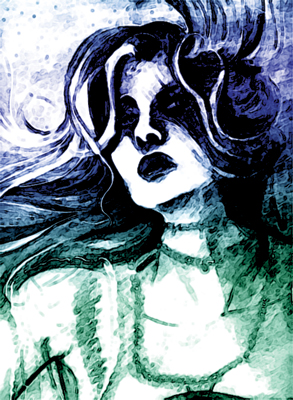All Nonfiction
- Bullying
- Books
- Academic
- Author Interviews
- Celebrity interviews
- College Articles
- College Essays
- Educator of the Year
- Heroes
- Interviews
- Memoir
- Personal Experience
- Sports
- Travel & Culture
All Opinions
- Bullying
- Current Events / Politics
- Discrimination
- Drugs / Alcohol / Smoking
- Entertainment / Celebrities
- Environment
- Love / Relationships
- Movies / Music / TV
- Pop Culture / Trends
- School / College
- Social Issues / Civics
- Spirituality / Religion
- Sports / Hobbies
All Hot Topics
- Bullying
- Community Service
- Environment
- Health
- Letters to the Editor
- Pride & Prejudice
- What Matters
- Back
Summer Guide
- Program Links
- Program Reviews
- Back
College Guide
- College Links
- College Reviews
- College Essays
- College Articles
- Back
A Glimpse of Light in Winter
On my eighteenth birthday, I turned seventy-nine.
My skin, as fair and unperturbed as it was at the onset of my ephemeral life (discounting the middling creases at my brow), shrouded my dotage with a stealth Joan Rivers could only dream of. My eyes had yet to begin to sag, my veins had yet to tendril visibly along the translucent skin of my fingers and hands, my golden tresses had yet to transmute into a drab bob flecked with the silvery strands of wisdom. To the observer, I was in the tender spring of my life, budding with the same carefree vivaciousness as that of a cherry blossom. Yet beyond my vernal exterior was a beldam with skin wrinkled by the harsh and demanding winter, brought about not by the journey of life, but by the Absurd; I had the burdened soul of a person who had weathered life's seasons, certain of the dark night ahead of her and insignificance of the journey she had traveled. Death's inevitability and life's triviality bore down on my soul with a pervasive force, deteriorating perceived meaning in the black abyss of my mind. No escape there was from these thoughts.
After all, how could I elude my own mind?
Before mine accommodated these rampant ruminations, they had lodged themselves in another unwitting soul: my mother's. Though her lips arched upwards in an uneven grin, her dark eyes, once glistening with buoyancy, reflected her melancholy and lamented her father's death. Her smiling façade may have fooled my more vulnerable self if not for the days she retreated into the cold, murky void of her room and mind. My father, deemed protector of innocence, barred me from entering the morose vacuum, claiming maternal exhaustion. But his veneer could not muffle the sobs echoing from her bedroom, could not justify the frequency of its locked doors, could not explain her inability to get out of bed. For nine years, these incidents persisted at various regularities, intensifying as she sprinted toward that menacing midlife marker. Privy to only her veiled semblance, I tiptoed around her existence, circumventing anything that might send her withdrawing into that empty hole of unconsciousness. I existed in constant fear of the unknown.
No longer unaccompanied was my mother in that same abysmal depression of madness clawing and scraping and digging and shoveling, frantically struggling to crawl her way out of that hollow excavation in the vain hope of preserving the remnants of her sanity. Gradually, then suddenly, the weight of the world was on my shoulders—every murder, suicide, death, tragedy—accumulating until the burden overwhelmed me. I couldn't breathe. I couldn't think. I couldn't move without heavy legs and arms. Time and Future, my merciless adversaries, were constant reminders of my own mortality and irrelevance.
Why go on when everything ends?
My liberation came in the unexpected form of a student-dreaded, teacher-coveted play: Hamlet. The eponymous character, in his famous soliloquy, hypothesizes the nature of life, death, and suicide. Naturally, I found him a kindred spirit, for his quest to find meaning in a seemingly meaningless world mirrored my own; it was no longer a solitary journey. Captured by the eloquence and brilliance with which Shakespeare fashioned humanity's intrinsic struggles into mere words, I embarked on a journey to elicit that same compassion and camaraderie I had felt. Though lacking Shakespeare's flare, I too battled my demons with a sharpened pencil and raw insight gleaned while lost in my mind's deep void—gradually, then suddenly, shuffling off that same mortal coil in the process.
Writing, to me, is a way to express these innermost thoughts and feelings, to comfort those who need comforting, to evoke empathy and companionship. Using history and my own experiences for inspiration, I will be teacher to the uninformed, leader to the masses, and friend to the reader in his own dark winter.
I may be mortal, but my writing will not be.

Similar Articles
JOIN THE DISCUSSION
This article has 0 comments.
